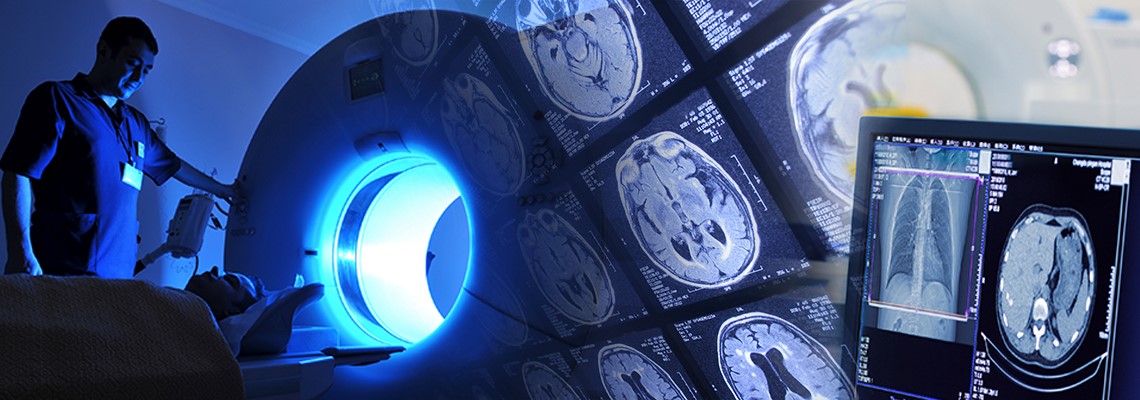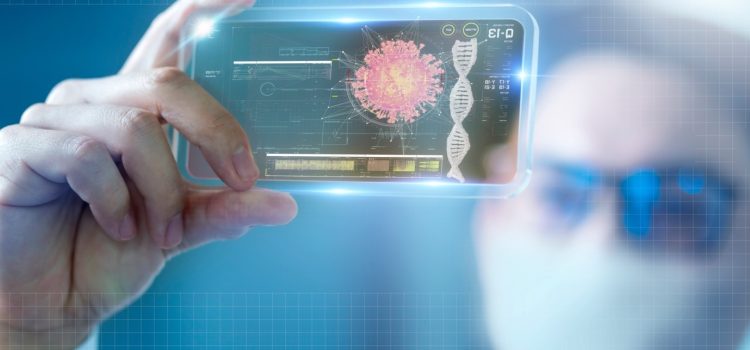
The advent of Artificial Intelligence (AI) has revolutionized various sectors, and healthcare is no exception. One of the most promising applications of AI in healthcare is early disease detection. This article explores the role AI plays in identifying diseases at their nascent stages, focusing on its potential, current applications, and future prospects.
The Potential of AI in Early Disease Detection
Early detection of diseases is crucial for effective treatment and improved patient outcomes. Traditional diagnostic methods often rely on the expertise of medical professionals, which can be limited by human error and the availability of specialized skills. AI, with its ability to analyze vast amounts of data quickly and accurately, presents a significant opportunity to enhance early detection processes.
Data Analysis and Pattern Recognition
AI algorithms excel at analyzing complex datasets and identifying patterns that may be imperceptible to human eyes. Machine learning (ML) models can be trained on large datasets comprising medical records, imaging studies, and genetic information to recognize early signs of diseases. For instance, AI can analyze radiological images to detect minute anomalies that could indicate the early stages of cancer, often before symptoms manifest.
Predictive Analytics
Predictive analytics is another area where AI shows immense potential. By analyzing historical data, AI systems can predict the likelihood of disease development in individuals. This is particularly valuable for chronic diseases such as diabetes and cardiovascular conditions, where early intervention can significantly reduce the risk of severe complications.
Current Applications of AI in Early Disease Detection
AI is already making significant strides in early disease detection across various medical fields. Here are some notable examples:
Oncology
Cancer detection is one of the most researched areas in AI-driven diagnostics. AI algorithms have been developed to analyze mammograms, CT scans, and MRIs with remarkable accuracy. For instance, Google’s DeepMind has created an AI system that can detect breast cancer with greater accuracy than radiologists. These advancements are not only enhancing diagnostic accuracy but also reducing the workload on medical professionals.
Cardiology
In cardiology, AI is being used to predict and diagnose heart diseases. Algorithms can analyze electrocardiograms (ECGs) to detect arrhythmias and other cardiac abnormalities. Moreover, AI-driven wearable devices can continuously monitor heart health and alert users and healthcare providers to potential issues before they become critical.
Neurology
Neurological disorders such as Alzheimer’s disease and Parkinson’s disease can benefit significantly from early detection. AI can analyze brain scans and other neurological data to identify early markers of these conditions. For example, IBM’s Watson has been used to analyze medical literature and patient data to identify early signs of Parkinson’s disease, potentially enabling earlier intervention and better management of the disease.
Infectious Diseases
The COVID-19 pandemic has highlighted the importance of early detection of infectious diseases. AI has been employed to analyze data from various sources, including social media, to predict outbreaks and track the spread of the virus. Additionally, AI algorithms have been used to analyze chest X-rays and CT scans to identify COVID-19 infections, aiding in timely diagnosis and treatment.

Challenges and Ethical Considerations
While the potential of AI in early disease detection is immense, several challenges and ethical considerations must be addressed.
Data Privacy and Security
The use of AI in healthcare involves the collection and analysis of vast amounts of sensitive patient data. Ensuring the privacy and security of this data is paramount. Robust data protection measures and compliance with regulations such as the General Data Protection Regulation (GDPR) are essential to maintain patient trust.
Algorithm Bias
AI algorithms are only as good as the data they are trained on. If the training data is biased, the AI system may produce biased results, potentially leading to disparities in healthcare outcomes. Efforts must be made to ensure that training datasets are diverse and representative of different populations.
Clinical Validation
AI algorithms must undergo rigorous clinical validation before they can be widely adopted. This involves extensive testing to ensure that the algorithms are accurate, reliable, and safe for use in clinical settings. Collaboration between AI developers, healthcare providers, and regulatory bodies is crucial to achieving this.
Ethical Implications
The use of AI in healthcare raises several ethical questions. For instance, who is responsible if an AI system makes an incorrect diagnosis? How should AI-driven decisions be communicated to patients? Addressing these ethical considerations is essential to ensure that AI is used responsibly and transparently in healthcare.
Future Prospects
The future of AI in early disease detection looks promising. Advances in AI technologies, combined with the increasing availability of healthcare data, are likely to drive further innovations in this field.
Personalized Medicine
AI has the potential to revolutionize personalized medicine by tailoring diagnostic and treatment approaches to individual patients. By analyzing genetic, environmental, and lifestyle factors, AI can help identify personalized risk factors for diseases and recommend targeted interventions.
Integration with Wearable Technology
The integration of AI with wearable technology is another exciting prospect. Wearable devices equipped with AI algorithms can continuously monitor vital signs and other health metrics, providing real-time insights into an individual’s health status. This can enable early detection of potential health issues and prompt timely interventions.
Global Health Impact
AI-driven early disease detection can have a significant impact on global health, particularly in low-resource settings. AI systems can help bridge the gap in healthcare access by providing accurate and timely diagnoses in regions with limited medical expertise and infrastructure.
Conclusion
AI is poised to play a transformative role in early disease detection, offering the potential to improve diagnostic accuracy, enhance patient outcomes, and reduce healthcare costs. While challenges and ethical considerations remain, ongoing advancements in AI technology and collaborative efforts between stakeholders hold the promise of a future where early detection and intervention are more effective and accessible than ever before.
In summary, the integration of AI into early disease detection represents a significant leap forward in healthcare, paving the way for a healthier and more proactive approach to disease management.










